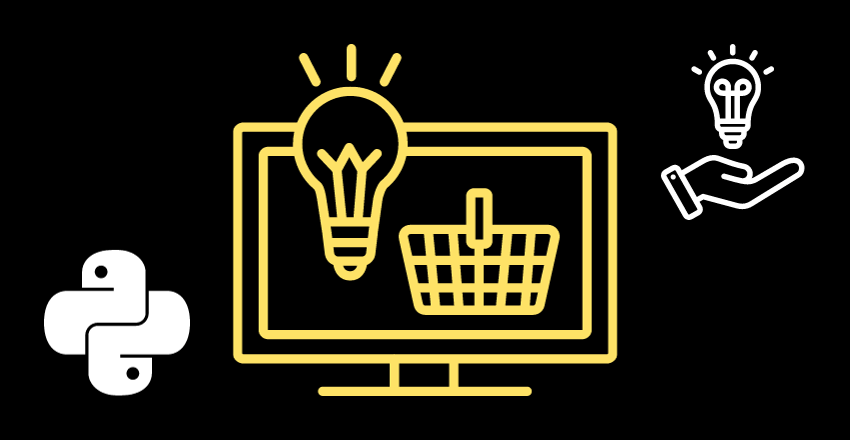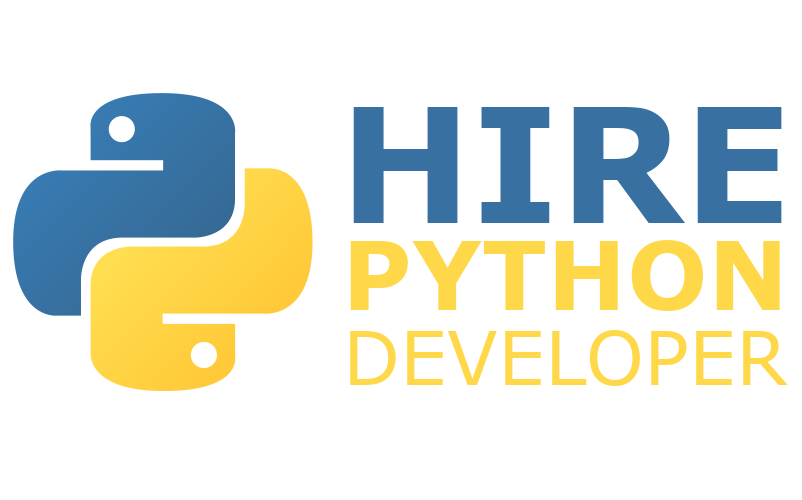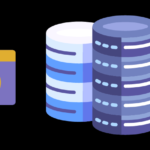 With the rapid growth of online business, the need for e-commerce solutions that are scalable, reliable, and innovative has become more vital than ever. Python e-commerce solutions have emerged as an effective way to optimize online businesses. Python is a high-level programming language that features a clean syntax and an extensive library, making it a popular choice for building e-commerce platforms.
With the rapid growth of online business, the need for e-commerce solutions that are scalable, reliable, and innovative has become more vital than ever. Python e-commerce solutions have emerged as an effective way to optimize online businesses. Python is a high-level programming language that features a clean syntax and an extensive library, making it a popular choice for building e-commerce platforms.
Python e-commerce solutions offer numerous advantages, including the ability to handle large amounts of data and integrate with other systems seamlessly. Additionally, Python frameworks, such as Django and Flask, provide powerful tools for developing highly-customized e-commerce platforms.
Whether you are an entrepreneur looking to launch an online business or an established enterprise seeking to optimize your online presence, leveraging the power of Python e-commerce solutions can help you stay ahead of the game in this competitive industry.
Building E-commerce Solutions with Python
Python has become increasingly popular for building e-commerce solutions due to its scalability and reliability. In this section, we will explore the process of building e-commerce platforms using Python, as well as the key programming concepts and features of popular Python frameworks for e-commerce development.
Python Libraries and Frameworks
Python offers a wide range of libraries and frameworks that can be used to build e-commerce platforms. Some popular Python frameworks for e-commerce development include Django, Flask, and Pyramid.
For instance, Django is a high-level Python web framework that provides a clear and logical structure for building e-commerce platforms. It offers built-in security features and supports database migrations, making it easier to manage the backend of an e-commerce site.
Flask, on the other hand, is a lightweight framework that is easy to use and customize. It is ideal for building small to medium-sized e-commerce platforms and can be integrated with other Python libraries and frameworks to extend its functionality.
Programming Concepts in Python E-commerce Solutions
When building e-commerce platforms with Python, there are several programming concepts that developers need to be familiar with. These include object-oriented programming, database management, and web development concepts such as HTTP requests and responses.
Python frameworks for e-commerce development often come with built-in support for these programming concepts. For example, Django includes an object-relational mapper (ORM) that makes it easier to work with databases, while Flask uses Werkzeug for handling HTTP requests and responses.
Code Examples in Python Frameworks
Let’s take a look at some code examples in popular Python frameworks for e-commerce development. In Django, we can use the following code to define a model for a product:
# models.py
from django.db import models class Product(models.Model): name = models.CharField(max_length=255) price = models.DecimalField(max_digits=10, decimal_places=2) description = models.TextField()
Here, we define a Product model that has three fields: name, price, and description. We specify that name should be a character field with maximum length of 255 characters, price should be a decimal field with maximum digits of 10 and 2 decimal places, and description should be a text field.
In Flask, we can use the following code to create a simple e-commerce platform:
# app.py
from flask import Flask, render_template app = Flask(__name__) @app.route('/') def home(): return render_template('home.html') @app.route('/products') def products(): return render_template('products.html') if __name__ == '__main__': app.run()
In this example, we define two routes: one for the home page and one for the products page. We use the render_template function to render HTML templates for these pages. Finally, we start the Flask application by calling the app.run method.
These are just a few examples of how Python can be used to build e-commerce platforms. With its wide range of libraries and frameworks, it offers developers a flexible and powerful toolset for creating scalable and reliable online businesses.
Leveraging Python for E-commerce Success

As online businesses continue to grow and evolve, it’s essential to use expert solutions that can keep up with the latest trends in e-commerce. Python, with its diverse range of frameworks and libraries, offers unmatched potential for building scalable and reliable e-commerce platforms. Python for scalability is a smart choice for businesses that want to optimize their online presence and drive success.
Python has emerged as one of the most popular programming languages for e-commerce development, with many industry leaders adopting it for their online businesses. For example, e-commerce giants like Amazon and eBay leverage Python-based solutions to manage their complex online platforms. The trend towards Python-based e-commerce solutions is only set to continue and grow, as more and more businesses realize the benefits of this powerful programming language.
Python’s scalability is one of its most significant advantages, allowing businesses to build and expand their online presence with ease. Python-based e-commerce platforms can handle high traffic volumes and complex business logic, ensuring that online businesses can operate effectively and efficiently without interruptions or downtime.
Additionally, Python provides developers with a wide range of tools and libraries to create innovative and customizable e-commerce platforms. With Python, businesses can use frameworks like Django and Flask to build feature-rich and dynamic e-commerce websites that offer personalized shopping experiences for customers.
Overall, Python offers a unique combination of scalability, flexibility, and reliability for e-commerce development, making it the ideal choice for businesses looking to optimize their online presence. By leveraging Python’s capabilities, online businesses can drive their success and stay ahead of the competition in the fast-paced world of e-commerce.
Comparing Python Frameworks for E-commerce
Python offers a diversity of frameworks for building e-commerce platforms. Two popular and highly versatile Python frameworks for e-commerce are Django and Flask. Both frameworks have their own unique features that make them suitable for different types of e-commerce solutions.
Django
Django is a full-stack web framework that offers many features and modules for building scalable and reliable e-commerce platforms. It comes with a powerful Object-Relational Mapping (ORM) system that supports multiple databases, including MySQL, PostgreSQL, and SQLite. This framework is best suited for large-scale e-commerce platforms that require complex functionalities.
One of the advantages of Django is its built-in administration panel that allows developers to manage site content and user data easily. Django also offers a plethora of third-party libraries and plugins that can be used to add extra features to an e-commerce site. For example, the Django-Oscar library provides a comprehensive set of e-commerce features such as checkout, payment, and shipping options that can be easily integrated into a Django-based e-commerce platform.
Below is an example of how to create an e-commerce website using Django:
# importing the necessary Django modules from django.db import models from django.urls import reverse # creating the product model class Product(models.Model): title = models.CharField(max_length=255) description = models.TextField() price = models. DecimalField(decimal_places=2, max_digits=10) # generating the product URL def get_absolute_url(self): return reverse("product_detail", args=[str(self.id)])
Flask
Flask is a lightweight web framework that provides a minimalistic approach to building e-commerce platforms. It does not come with many built-in features, but it offers flexibility and is easy to learn. Flask is best suited for smaller e-commerce platforms or for building custom e-commerce solutions.
One of the advantages of Flask is its simplicity and ease of use. The framework provides a simple interface for creating routes and handling requests, making it easier to develop custom e-commerce solutions that cater to specific business needs. Flask also has a range of extensions and libraries that can be used to add extra functionality to an e-commerce platform. For example, the Flask-Login extension can be used to implement user authentication and authorization in an e-commerce site.
Below is an example of how to create an e-commerce website using Flask:
# importing the necessary Flask modules from flask import Flask, render_template # creating the Flask app app = Flask(__name__) # creating the product route @app.route('/product') def product(): product_title = 'Product Name' product_description = 'Product Description' product_price = 9.99 return render_template('product.html', title=product_title, description=product_description, price=product_price)
In conclusion, Django and Flask are both great frameworks for building e-commerce platforms. Django is best suited for larger and complex e-commerce sites, while Flask is ideal for smaller and more customized solutions. When deciding on which framework to use, it’s important to consider the specific needs of a business and its customers.
Key Features of Python E-commerce Solutions

Python e-commerce solutions offer several key features that set them apart from other programming languages. These features enable businesses to create scalable and reliable e-commerce platforms that can handle high traffic and complex transactions. Here are some of the key features of Python e-commerce solutions:
- Scalability: Python’s ability to handle large amounts of data and traffic makes it an ideal choice for building e-commerce platforms that can scale quickly to meet growing demand.
- Reliability: Python’s strong type checking and error handling ensure that e-commerce platforms built using Python are highly reliable and can operate effectively under stressful conditions.
- Flexibility: Python’s versatility allows developers to create custom solutions for specific business needs and tailor e-commerce platforms to meet the unique demands of individual businesses.
- Performance: Python’s efficiency and speed make it a great choice for optimizing e-commerce platform performance and delivering a seamless user experience.
- Community: Python has a large and active community of developers continuously contributing new libraries, frameworks, and tools to enhance the language and help developers build better e-commerce solutions.
By leveraging these features, businesses can create e-commerce platforms that are fast, efficient, and highly secure, providing an optimal user experience for customers.
Enhancing User Experience with Python
Python can be an invaluable tool for enhancing the user experience on e-commerce platforms. With its flexibility and interactivity, Python can create personalized shopping experiences that engage users and drive conversions.
One example of how Python can enhance user experience is through the use of personalized product recommendations. By analyzing a user’s browsing and purchase history, Python can suggest products that are likely to interest them, increasing the likelihood of a sale.
“””Code Example: Personalized Product Recommendations”””
import pandas as pd import numpy as np from sklearn.feature_extraction.text import CountVectorizer from sklearn.metrics.pairwise import cosine_similarity products = pd.read_csv('product_data.csv') user_id = 1234 user_history = pd.read_csv(f'user_history_{user_id}.csv') vectorizer = CountVectorizer() X = vectorizer.fit_transform(products['description']) cosine_sim = cosine_similarity(X) sim_scores = list(enumerate(cosine_sim[user_history.iloc[-1][' product_id']]))) sim_scores = sorted(sim_scores, key=lambda x: x[1], reverse=True) sim_scores = sim_scores[1:11] product_indices = [i[0] for i in sim_scores] recommended_products = products.iloc[product_indices]['product_name']. tolist() print("Recommended Products:") for product in recommended_products: print(product)
Another way Python can improve user experience is through interactivity. For example, Python can be used to create chatbots that can answer customer questions and provide support 24/7. By providing instant assistance and resolving issues quickly, chatbots can increase customer satisfaction and improve the likelihood of repeat business.
Ultimately, the flexibility and interactivity of Python make it an ideal tool for creating personalized e-commerce solutions that delight customers and drive sales.
Securing E-commerce Platforms with Python
Security is a crucial aspect of any e-commerce platform, as it ensures the safety of online transactions and protects user data. Python provides a range of security features and practices that can help developers create secure e-commerce solutions.
One common practice is to use HTTPS for secure communication between the web server and the client browser, which can be implemented in Python using frameworks such as Flask or Django. Additionally, Python frameworks provide built-in security features such as cross-site scripting (XSS) and cross-site request forgery (CSRF) protection.
Python Security Practices Description Input Validation Checking and validating user input to prevent malicious data from being entered Password Hashing Storing passwords in a hashed format rather than plain text, making them more difficult to steal Two-Factor Authentication Adding an extra level of security by requiring users to provide a second form of authentication, such as a text message code or biometric data
Another way Python can be used to ensure security is by implementing secure payment gateways, such as Stripe or PayPal, which can be easily integrated into Python e-commerce platforms. These payment gateways provide encryption and tokenization of sensitive payment information, ensuring that it cannot be intercepted or stolen.
Overall, Python’s robust security features and practices make it an ideal choice for building secure and reliable e-commerce platforms. By following best practices and implementing the right security measures, developers can ensure that their online business is protected from potential threats and customers’ private data is secure.
Optimizing Performance with Python

Python is a powerful language for optimizing the performance of e-commerce platforms. By utilizing various techniques and tools, businesses can ensure their platforms are scalable and efficient.
Scaling E-commerce Platforms
One key advantage of Python is its ability to scale e-commerce platforms. When the number of users or transactions increases, Python allows for the quick and easy addition of resources to handle the increased load. This can be done through load balancing across multiple servers or by implementing asynchronous programming techniques.
Python also offers caching techniques that can improve performance by reducing the time it takes to access frequently used data. By storing data in memory and retrieving it quickly, Python can speed up the execution of e-commerce platform functions.
Python Caching Techniques
Caching is a valuable technique for improving performance in e-commerce platforms. Python offers various caching techniques such as in-memory caches, memoization, and distributed caching. These techniques can be used to save frequently accessed data to memory, reducing the time it takes to retrieve it. Python caching can help e-commerce platforms handle high traffic volumes, improve their response times, and increase their scalability.
Asynchronous Programming Techniques
Another technique for optimizing performance with Python is asynchronous programming. By allowing multiple tasks to run concurrently, asynchronous programming can improve the efficiency of e-commerce platforms. Asynchronous programming can be implemented using Python frameworks such as asyncio and Twisted, which allow developers to write non-blocking code and manage multiple I/O operations at once.
Comparing Python Frameworks
Python offers several popular frameworks for developing e-commerce platforms, each with its own strengths and weaknesses. Two of the most popular frameworks include Django and Flask.
| Framework | Key Features |
|---|---|
| Django |
|
| Flask |
|
Developers can leverage the strengths of each framework to build scalable and efficient e-commerce platforms using Python.
By utilizing Python’s caching techniques, asynchronous programming, and powerful frameworks, businesses can optimize the performance of their e-commerce platforms and ensure they are scalable and reliable.
Conclusion: Unleashing the Potential of Python E-commerce Solutions
Python solutions for e-commerce have shown immense potential in optimizing online businesses. With the advantages of scalability and reliability, businesses can build e-commerce platforms that cater to the needs of their customers. Python’s flexibility and powerful libraries make it an ideal choice for building feature-rich and interactive e-commerce platforms.
By leveraging Python, businesses can achieve success in the e-commerce industry. Python trends in e-commerce have shown promising results, and its use in building e-commerce platforms is increasing rapidly.
Python e-commerce solutions offer personalized shopping experiences and can enhance user engagement. The use of Python frameworks and libraries allows for efficient development and scaling of e-commerce platforms.
Python e-commerce solutions also offer advanced security measures, ensuring secure online transactions for businesses and their customers. Best practices in Python security practices can help protect against cyber threats and fraud.
Optimizing the performance of e-commerce platforms is crucial for businesses to drive conversions and retain customers. Python’s caching techniques, asynchronous programming, and load balancing can help optimize the platform’s performance and ensure efficient scaling.
FAQ

Q: What are Python e-commerce solutions?
A: Python e-commerce solutions refer to the use of the Python programming language and its libraries and frameworks to build and optimize online businesses. Python offers scalability, reliability, and flexibility for building e-commerce platforms.
Q: Why should businesses consider using Python for their e-commerce platforms?
A: Python provides numerous advantages for building e-commerce platforms, including scalability, reliability, and a wide range of libraries and frameworks specifically designed for e-commerce development. Python’s simplicity and readability also make it easier to maintain and update e-commerce platforms.
Q: Which Python frameworks are commonly used for building e-commerce platforms?
A: Some popular Python frameworks for e-commerce development include Django, Flask, and Pyramid. These frameworks provide a robust foundation for building scalable and feature-rich e-commerce platforms.
Q: How can Python enhance the user experience on e-commerce platforms?
A: Python can enhance the user experience on e-commerce platforms by enabling personalized shopping experiences, interactivity through features like chatbots or recommendation systems, and seamless navigation and checkout processes.
Q: How can Python contribute to the security of e-commerce platforms?
A: Python offers built-in security features and libraries that can be used to implement secure online transactions. Best practices for securing e-commerce platforms, such as encryption and authentication, can also be implemented using Python.
Q: How can Python optimize the performance of e-commerce platforms?
A: Python offers various performance optimization techniques, such as caching, asynchronous programming, and load balancing. These techniques can improve the speed and efficiency of e-commerce platforms, ensuring a smooth user experience.
Lydia is a seasoned technical author, well-versed in the intricacies of software development and a dedicated practitioner of Python. With a career spanning 16 years, Lydia has made significant contributions as a programmer and scrum master at renowned companies such as Thompsons, Deloit, and The GAP, where they have been instrumental in delivering successful projects.
A proud alumnus of Duke University, Lydia pursued a degree in Computer Science, solidifying their academic foundation. At Duke, they gained a comprehensive understanding of computer systems, algorithms, and programming languages, which paved the way for their career in the ever-evolving field of software development.
As a technical author, Lydia remains committed to fostering knowledge sharing and promoting the growth of the computer science community. Their dedication to Python development, coupled with their expertise as a programmer and scrum master, positions them as a trusted source of guidance and insight. Through their publications and engagements, Lydia continues to inspire and empower fellow technologists, leaving an indelible mark on the world of scientific computer science.


![15 Most Contributed Python Projects on GitHub [Stats]](https://hirepythondeveloper.com/wp-content/uploads/2024/03/15-Most-Contributed-Python-Projects-on-GitHub-Stats-1-150x150.png)




